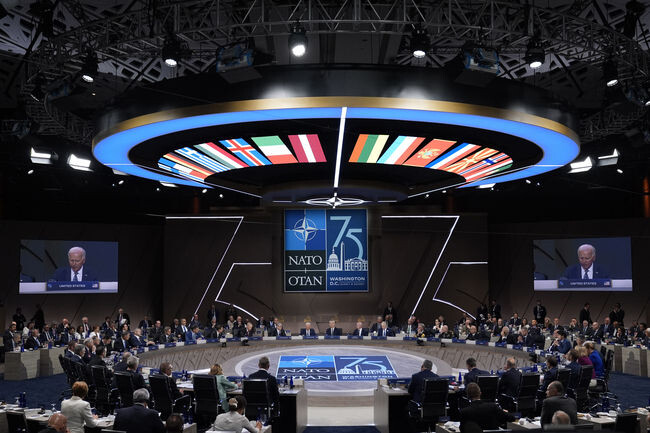
Ahead of the North Atlantic Treaty Organization (NATO) Summit in The Hague, Netherlands, from June 24-25, it has been reported that U.S. President Donald Trump is coordinating a special meeting with the leaders of the four key Indo-Pacific partners (IP4): South Korea, Japan, Australia, and New Zealand. This move is seen as an effort to strengthen security cooperation between the Euro-Atlantic and Indo-Pacific regions amidst escalating threats from China and Russia.
The IP4 refers to Australia, Japan, New Zealand, and South Korea, and these nations have been invited to the NATO Summit annually since the 2022 Madrid Summit, following Russia's invasion of Ukraine. These countries and NATO have collaborated with a shared goal of maintaining a rules-based international order. Notably, at the 2024 Washington D.C. Summit, new projects were launched to expand cooperation in areas such as military medical support, cyber defense, countering disinformation, and new technologies like artificial intelligence, emphasizing the interconnectedness of Euro-Atlantic security and the Indo-Pacific region. This Hague Summit is expected to address key agenda items, including strengthening NATO's deterrence and defense posture and setting new defense spending targets.
In this context, the U.S. side is expected to reaffirm its commitment to expanding security cooperation through a special meeting between President Trump and the IP4 leaders, and to discuss public-private collaboration in technology fields such as drones. This aligns with NATO's reported intention to cooperate with the Japanese government on advanced technologies like drones.
However, the South Korean Presidential Office officially announced President Lee Jae-myung's non-participation in the NATO Summit on June 22. Presidential Spokesperson Kang Yu-jung stated that this was an unavoidable decision, made after comprehensively considering pressing domestic issues and uncertainties arising from the Middle East situation. Given that former President Yoon Suk-yeol attended the NATO Summit for three consecutive years, this decision is regarded as unusual. The Presidential Office plans to consult with NATO regarding the attendance of a government representative in place of the President.
Some analysts suggest that President Lee Jae-myung's absence is linked to his domestic political schedule, particularly the confirmation hearing for the prime minister nominee. Furthermore, heightened tensions in the Middle East following a potential U.S. military strike on Iranian nuclear facilities also appear to have influenced the decision. Critics argue that South Korea's non-participation could be perceived as a diplomatic misstep, undermining trust among allies and weakening South Korea's diplomatic and security standing. Moreover, Japan's Prime Minister Ishiba Shigeru is also reportedly considering not attending the NATO Summit due to the Middle East situation, suggesting a potential setback for President Trump's IP4 special meeting initiative.
While the role of the IP4 countries and the U.S.'s Indo-Pacific strategy were expected to become even more important at this NATO Summit, observations suggest that the weight of the discussions might be somewhat diminished due to the potential absence of the South Korean and Japanese leaders. This clearly demonstrates how the domestic situations of individual countries influence their diplomatic choices amidst complex international circumstances.
[Copyright (c) Global Economic Times. All Rights Reserved.]




























